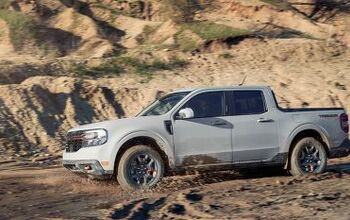China Will Again Control Rare Metals in Hybrids, Other Cars

Metals found in hybrid batteries, diesel fuel and headlight glass could again be subject to China’s ever-changing rules for rare earth exports.
On Wednesday, Molycorp announced that it would be suspending its mining operations of rare earth metals in California, but keep its mines in China and Estonia open for the time being.
The company, which went public in 2011, has fallen on hard times. In June, the company filed for Chapter 11 bankruptcy protection and slowing demand in China isn’t helping. However, without a mine in the U.S., much of the rare earth metal mined in the world could be under Chinese government purview, and that’s not good.
In 2010, China’s tightening grip of its mines and exported metals opened a hole for Molycorp to exploit. As prices skyrocketed for rare earth metals found in many parts of vehicles, so did the need for domestic production.
Now, as a flood of illicitly obtained metals and loosened export restrictions by China reduces the value of the metal — in some cases by 50 percent, according to a Molycorp spokesman — the mining company was forced to lay off 500 workers and shutter its mine in California.
“In general, global demand for rare earths used in vehicles — particularly for the magnetic elements that go into fuel efficient vehicles, direct drive wind turbines, and energy saving home appliances — has been positive and is forecast for robust growth over the next several years. The problem is on the supply side,” said Jim Sims, spokesman for Molycorp.
That could set up a situation for automakers similar to 2010, when China severely restricted how much metal it would export and drove up the overall price. Analysts say China controls up to 95 percent of the market.
Sims also said producers in China are mining rare earth metals illicitly or without environmental impact oversight, which are making their way into cars today. According to Dudley Kingsnorth, a professor at Curtin University in Perth, Australia, up to 50 percent of rare earth magnets contain illicit material.
“The Chinese Government readily admits that this illicit production and smuggling is occurring, that it is the primary cause of weak rare earth pricing, and that they have had limited success to date in getting it in under control,” Sims said. “Even some legitimate producers in China who follow the rules and try to do right by the environment aren’t making money these days in their rare earth business.”

More by Aaron Cole
Latest Car Reviews
Read moreLatest Product Reviews
Read moreRecent Comments
- Lorenzo I just noticed the 1954 Ford Customline V8 has the same exterior dimensions, but better legroom, shoulder room, hip room, a V8 engine, and a trunk lid. It sold, with Fordomatic, for $21,500, inflation adjusted.
- Lorenzo They won't be sold just in Beverly Hills - there's a Nieman-Marcus in nearly every big city. When they're finally junked, the transfer case will be first to be salvaged, since it'll be unused.
- Ltcmgm78 Just what we need to do: add more EVs that require a charging station! We own a Volt. We charge at home. We bought the Volt off-lease. We're retired and can do all our daily errands without burning any gasoline. For us this works, but we no longer have a work commute.
- Michael S6 Given the choice between the Hornet R/T and the Alfa, I'd pick an Uber.
- Michael S6 Nissan seems to be doing well at the low end of the market with their small cars and cuv. Competitiveness evaporates as you move up to larger size cars and suvs.

































Comments
Join the conversation
I remember the rare earths frenzy in the stock market. It lasted a few months until experts pointed out you can recycle them just like most other metals, thus China would not control the entire market.
The next-gen Chevy Volt's redesign was heavily influenced by the requirement to significantly reduce rare-earth metal content in the (now 2) electric motors. Expect this trend to continue.